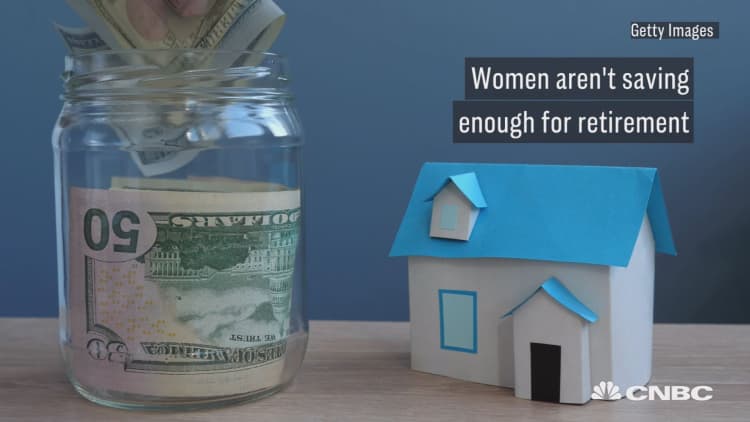"Retirement" wasn't a word I heard growing up.
My mother worked long hours and had a spending problem. My father said the stock market only benefited the rich. I assumed you dealt with retirement when you were old.
That all changed when I landed a job as a personal finance writer at CNBC, reporting on the financial challenges people face at every age level. On the top of the list, I soon learned, is how unprepared people are when those paychecks stop coming and they need to live on a fixed income.
Americans save half of what they should for retirement, according to the Stanford Center on Longevity. More than 40 percent of single retirees end up with basically just their Social Security to live on. That's frightening when you consider that the average monthly check is just $1,413.
The problems felt insurmountable: growing income inequality, the disappearance of traditional pensions. I often interview people my age who can barely make their student loan payments. Just talking about retirement seems like a privilege.
Yet in my interviews with financial advisors and consumer advocates, I was struck at how simple they all said at least one of the solutions was. People didn't need to save crazy amounts of money, they just needed to start saving earlier. Much earlier.
Now for some math, provided to me by retirement savings expert Ed Slott.
Let's say you begin preparing for retirement at 45. You save $5,000 each year in a Roth IRA. That investment account allows your money to grow tax-free, and you can start making withdrawals from it at 59½.
By age 70, assuming a 7 percent annual return, you'd have $338,000.
But now let's imagine that you start doing this a decade earlier, at 35. When you reach 70, you'd have $740,000.
If you started the routine at 25? You'd have more than $1.5 million.
"Time is the greatest money-making asset an individual can possess," Slott told me.
| Age group | Share of families with IRA/Keogh accounts | Median account value |
|---|---|---|
| 25-34 | 17.70% | $10,000 |
| 35-44 | 26.90% | $26,000 |
| 45-54 | 30.10% | $48,000 |
| 55-64 | 36.40% | $76,000 |
Source: Stanford Center on Longevity
Still, the average millennial doesn't expect to start saving for retirement until their late 30s, according to a study by TD Ameritrade.
To be sure, many people can't afford to put away $5,000 a year. Still, that math demonstrates that how much you can save is less important than when you start doing so.
Also, if you're worried about putting away money that you may need long before 59 ½ — of course, emergencies can pop up, you should know you can withdraw money from a Roth IRA, unlike other retirement accounts, at any point without paying any penalties, so long as you don't touch the interest that's collected.
I'm 24 and saving $150 a month in a Roth IRA. I hope to put away more as I advance through my career, but even if I stayed at this rate, I'd still have more than $550,000 when I'm 70 (again, assuming a 7 percent annual return). I will also save money at work, through a 401(k) plan.
The other night, I was out to dinner with my mother. Now in her 60s, she's talking about retirement for the first time.
I showed her my account balance — $900!
"I'm proud of you," she said. Behind her smile, though, I can see her fighting back regret.
Disclosure: NBCUniversal and Comcast Ventures are investors in Acorns.







